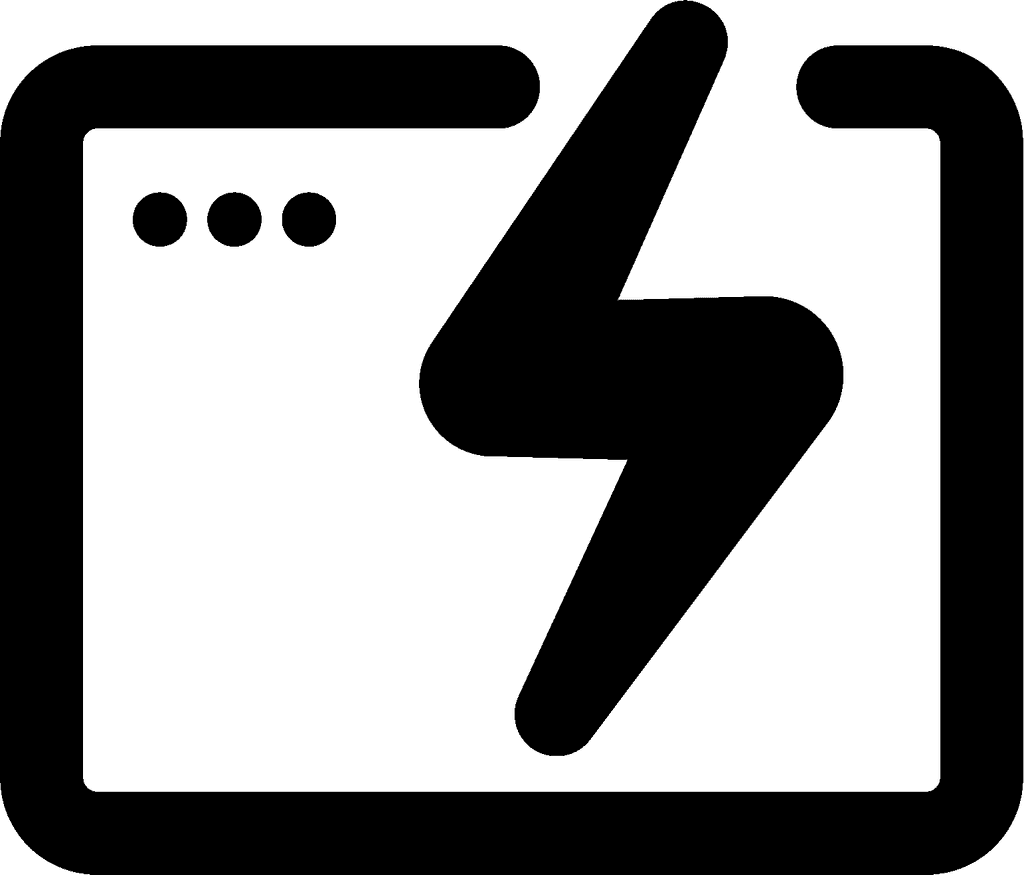AI Chatbot for Small Business: Boosting Customer Service and Efficiency
AI chatbots are revolutionizing small business operations. These intelligent digital assistants provide 24/7 customer support, boost sales, and enhance marketing efforts. AI chatbots enable small businesses to compete with larger enterprises by delivering personalized customer experiences at scale.
These versatile tools can handle a wide range of tasks, from answering frequently asked questions to guiding customers through the sales process. AI chatbots learn from each interaction, continuously improving their responses and becoming more effective over time.
Small businesses that implement AI chatbots often see increased customer satisfaction, higher conversion rates, and improved operational efficiency. By automating routine inquiries and tasks, these digital assistants free up human staff to focus on more complex and high-value activities.

Benefits of AI Chatbots for Small Businesses
AI chatbots offer significant advantages for small businesses looking to enhance their operations and customer interactions. These tools can revolutionize how companies engage with clients, generate leads, and provide support.
Boosting Customer Engagement
AI chatbots excel at keeping customers engaged with a business. They provide instant responses to inquiries, reducing wait times and frustration. These chatbots can initiate conversations, offer personalized product recommendations, and guide users through websites or apps.
Small businesses can use chatbots to collect valuable customer data. This information helps tailor marketing efforts and improve products or services. Chatbots also enable businesses to maintain a consistent brand voice across all interactions.
By handling routine queries, chatbots free up human staff to focus on more complex tasks. This increased efficiency can lead to improved customer satisfaction and loyalty.
Automating Sales and Lead Generation
AI chatbots serve as powerful tools for automating sales processes and generating leads. They can qualify potential customers by asking relevant questions and collecting contact information. This streamlines the sales funnel and ensures that human sales representatives focus on the most promising leads.
Chatbots can also:
Schedule appointments
Provide product information
Process orders
Upsell or cross-sell products
These capabilities allow small businesses to operate 24/7, capturing leads and making sales even outside of business hours. This expanded availability can significantly boost a company's bottom line.
Enhancing Customer Service Experience
AI chatbots dramatically improve customer service experiences. They offer immediate assistance, reducing wait times and increasing customer satisfaction. Chatbots can handle multiple inquiries simultaneously, ensuring no customer is left waiting.
These AI-powered assistants can:
Answer frequently asked questions
Provide order status updates
Assist with returns or exchanges
Escalate complex issues to human agents
Chatbots learn from each interaction, continuously improving their responses. This results in more accurate and helpful assistance over time. By providing 24/7 support, chatbots ensure that customers receive help whenever they need it, enhancing overall satisfaction and loyalty.
Key Features to Look for in AI Chatbots
AI chatbots offer numerous capabilities to enhance customer service and streamline business operations. When evaluating options, certain key features stand out as essential for maximizing effectiveness and return on investment.
Natural Language Processing Capabilities
Advanced natural language processing (NLP) enables chatbots to understand and respond to human language naturally. This technology allows bots to interpret context, intent, and sentiment.
Look for chatbots that can handle complex queries and maintain context throughout conversations. The ability to recognize and respond to idioms, slang, and industry-specific terminology is crucial.
Some chatbots use machine learning to improve their language understanding over time. This adaptive capability helps them become more accurate and effective with continued use.
Multilingual Support and Customization
Multilingual chatbots can communicate in multiple languages, expanding a business's global reach. Seek platforms that offer accurate translations and localized responses.
Customization options allow businesses to tailor the chatbot's personality, tone, and knowledge base. This ensures alignment with brand voice and specific industry needs.
Look for chatbots that can be easily trained on company-specific information, products, and services. The ability to create custom intents and responses is valuable for addressing unique customer inquiries.
Integration with Existing Platforms
Seamless integration with current business systems is crucial for maximizing chatbot effectiveness. Look for chatbots that can connect with CRM software, e-commerce platforms, and customer support tools.
API availability allows for easy data exchange between the chatbot and other applications. This enables more personalized interactions and streamlined workflows.
Consider chatbots that offer omnichannel support, allowing deployment across websites, messaging apps, and social media platforms. This ensures consistent customer experiences across all touchpoints.
Implementation Strategies
Implementing an AI chatbot for small businesses requires careful planning and execution. Selecting the right platform, building a robust knowledge base, and thorough testing are key steps in the process.
Choosing the Right Chatbot Platform
Small businesses should evaluate chatbot platforms based on their specific needs and technical capabilities. Many platforms offer pre-built templates and user-friendly interfaces, allowing for quick implementation without extensive coding knowledge.
Consider scalability, integration options, and pricing when selecting a platform. Some popular choices include Dialogflow, MobileMonkey, and ManyChat. These platforms provide drag-and-drop builders and customizable features.
Look for platforms that support natural language processing (NLP) to enhance the chatbot's ability to understand and respond to customer queries accurately.
Developing a Knowledge Base for AI Chatbots
A comprehensive knowledge base is crucial for an effective AI chatbot. Start by identifying common customer questions and concerns. Gather information from customer service logs, FAQs, and product documentation.
Organize the information into categories and create clear, concise responses. Use plain language and avoid jargon to ensure easy understanding.
Regularly update the knowledge base to reflect new products, services, or policy changes. Implement a system for continuous improvement based on user interactions and feedback.
Consider using machine learning algorithms to enhance the chatbot's ability to learn from conversations and improve its responses over time.
Testing and Training Your Chatbot
Thorough testing is essential to ensure the chatbot functions as intended. Begin with internal testing, involving team members to simulate various customer interactions.
Use test scenarios that cover a wide range of potential queries and edge cases. Monitor the chatbot's responses for accuracy, relevance, and tone.
Implement a beta testing phase with a select group of customers to gather real-world feedback. Analyze conversation logs to identify areas for improvement.
Train the chatbot continuously by reviewing and refining its responses. Use AI algorithms to learn from successful interactions and adjust responses accordingly.
Regularly evaluate the chatbot's performance using metrics such as customer satisfaction scores, resolution rates, and conversation duration.
Overcoming Challenges and Measuring Success
Implementing an AI chatbot for small businesses involves addressing key hurdles and tracking progress. Effective strategies can maximize the chatbot's potential and drive continuous improvement.
Handling Advanced Customer Queries
AI chatbots excel at answering common questions but may struggle with complex inquiries. To address this:
Implement a seamless handoff to human agents for intricate issues
Regularly update the chatbot's knowledge base with new information
Use natural language processing to improve query understanding
Businesses can also create decision trees to guide chatbots through multi-step problem-solving. This approach helps handle more nuanced customer needs effectively.
Utilizing Analytics for Continued Improvement
Analytics play a crucial role in enhancing chatbot performance. Key metrics to track include:
Response accuracy
User satisfaction ratings
Conversation completion rates
Average handling time
By analyzing these data points, businesses can identify areas for improvement. A/B testing different responses can optimize the chatbot's effectiveness. Regular review of chat logs helps refine the AI's language and tone.
Adapting to Technological Changes and User Feedback
The AI landscape evolves rapidly, requiring businesses to stay adaptable. To keep pace:
Monitor emerging AI technologies and integrate relevant advancements
Gather and act on user feedback to enhance the chatbot experience
Conduct periodic user surveys to identify pain points and preferences
Businesses should also consider implementing a beta testing program. This allows them to trial new features with a select group of users before wide-scale deployment. Staying responsive to user needs ensures the chatbot remains valuable and user-friendly.
The Future of AI Chatbots in Small Business Operations
AI chatbots are poised to revolutionize small business operations in the coming years. These intelligent systems will enhance customer interactions, streamline processes, and drive growth for companies of all sizes.
Innovative Uses of Conversational AI
AI chatbots will expand beyond basic customer service roles. They'll assist with inventory management, automatically reordering supplies when stock runs low. Chatbots will schedule appointments and send reminders to clients, freeing up staff time.
In marketing, AI-powered chatbots will analyze customer data to deliver personalized product recommendations. They'll also conduct surveys and gather feedback to improve business offerings.
For internal operations, chatbots will help onboard new employees, answer HR questions, and facilitate IT support. This will reduce the workload on human staff and improve efficiency.
The Role of AI in Business Transformation
AI chatbots will become central to business strategy. They'll provide real-time data analysis, helping small businesses make informed decisions quickly. Chatbots will generate detailed reports on customer behavior, sales trends, and operational efficiency.
These systems will integrate with other business software, creating a seamless flow of information across departments. This integration will enable small businesses to operate with the sophistication of larger enterprises.
AI chatbots will also facilitate 24/7 global operations, allowing small businesses to serve customers across time zones without increasing staff.
Staying Competitive with Emerging Technology
To remain competitive, small businesses must embrace AI chatbot technology. Those who adopt early will gain a significant advantage in customer service and operational efficiency.
AI chatbots will continually learn and improve, becoming more sophisticated over time. Small businesses should invest in scalable AI solutions that can grow with their needs.
Collaboration between humans and AI will be crucial. Employees will need training to work effectively alongside AI systems, maximizing the benefits of this technology.
Data security and privacy will be paramount. Small businesses must choose AI chatbot providers that prioritize protection of sensitive information to maintain customer trust.
Frequently Asked Questions
Small businesses often have questions about implementing AI chatbots. These FAQs address key considerations for choosing, integrating, and leveraging chatbot technology effectively.
What are the advantages of implementing an AI chatbot for a small business?
AI chatbots offer 24/7 customer support, reducing response times and improving customer satisfaction. They handle multiple inquiries simultaneously, freeing up staff for more complex tasks.
Chatbots can provide consistent information across all customer interactions, ensuring accuracy and reliability. They also collect valuable data on customer preferences and behaviors, enabling businesses to refine their offerings.
How can a small business choose the most suitable AI chatbot?
Assess your specific business needs and customer requirements. Consider factors like the complexity of inquiries your chatbot will handle and integration capabilities with existing systems.
Evaluate different chatbot platforms based on their features, ease of use, and scalability. Look for solutions that offer customization options to align with your brand voice and customer service approach.
What features should a small business look for in an AI chatbot?
Natural language processing capabilities are essential for understanding and responding to customer queries effectively. Multi-channel support allows the chatbot to operate across various platforms like websites, messaging apps, and social media.
Analytics and reporting features help track chatbot performance and customer interactions. Customization options enable businesses to tailor the chatbot's responses and appearance to match their brand identity.
Are there any cost-effective AI chatbot solutions available for small businesses?
Many chatbot platforms offer tiered pricing plans suitable for small businesses. Some providers offer free or low-cost basic plans with essential features.
Open-source chatbot frameworks can be a budget-friendly option for businesses with in-house technical expertise. These allow for greater customization but may require more time and resources to implement.
How can AI chatbots improve customer service for small businesses?
Chatbots provide instant responses to common customer inquiries, reducing wait times and improving overall satisfaction. They can handle routine tasks like appointment scheduling, order tracking, and product information requests.
By automating these processes, chatbots allow human agents to focus on more complex issues that require empathy and critical thinking. This leads to more efficient use of resources and improved customer experiences.
What are the best practices for integrating an AI chatbot into a small business's operations?
Start with a clear implementation strategy and set realistic goals for the chatbot. Train the chatbot with accurate information about your products, services, and policies.
Regularly update and refine the chatbot's knowledge base to ensure it provides current and relevant information. Monitor chatbot performance and gather user feedback to identify areas for improvement.
Maintain a balance between automated and human interactions. Implement a seamless handoff process for situations where human intervention is necessary.

Build a more powerful help desk with Risotto
Minimize Tickets and Maximize Efficiency
Simplify IAM and Strengthen Security
Transform Slack into a help desk for every department
Schedule your free demo



